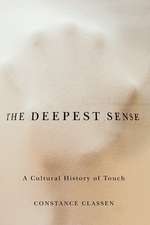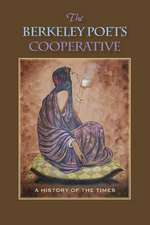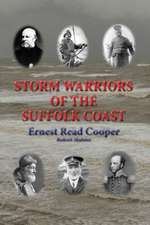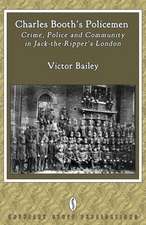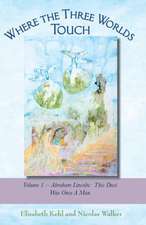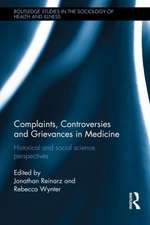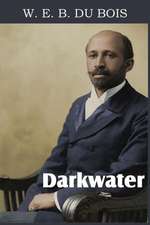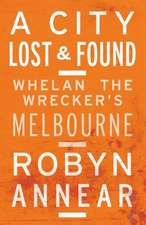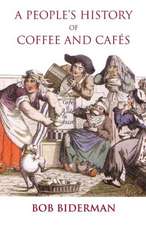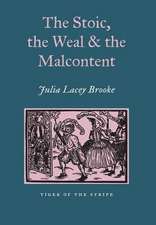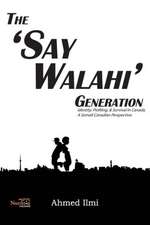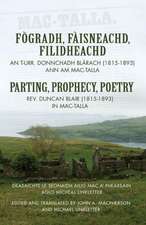Past Scents: Historical Perspectives on Smell: Studies in Sensory History
Autor Jonathan Reinarzen Limba Engleză Paperback – 21 feb 2014
In this comprehensive and engaging volume, medical historian Jonathan Reinarz offers a historiography of smell from ancient to modern times. Synthesizing existing scholarship in the field, he shows how people have relied on their olfactory sense to understand and engage with both their immediate environments and wider corporal and spiritual worlds.
This broad survey demonstrates how each community or commodity possesses, or has been thought to possess, its own peculiar scent. Through the meanings associated with smells, osmologies develop--what cultural anthropologists have termed the systems that utilize smells to classify people and objects in ways that define their relations to each other and their relative values within a particular culture. European Christians, for instance, relied on their noses to differentiate Christians from heathens, whites from people of color, women from men, virgins from harlots, artisans from aristocracy, and pollution from perfume.
This reliance on smell was not limited to the global North. Around the world, Reinarz shows, people used scents to signify individual and group identity in a morally constructed universe where the good smelled pleasant and their opposites reeked.
With chapters including "Heavenly Scents," "Fragrant Lucre," and "Odorous Others," Reinarz's timely survey is a useful and entertaining look at the history of one of our most important but least-understood senses.
This broad survey demonstrates how each community or commodity possesses, or has been thought to possess, its own peculiar scent. Through the meanings associated with smells, osmologies develop--what cultural anthropologists have termed the systems that utilize smells to classify people and objects in ways that define their relations to each other and their relative values within a particular culture. European Christians, for instance, relied on their noses to differentiate Christians from heathens, whites from people of color, women from men, virgins from harlots, artisans from aristocracy, and pollution from perfume.
This reliance on smell was not limited to the global North. Around the world, Reinarz shows, people used scents to signify individual and group identity in a morally constructed universe where the good smelled pleasant and their opposites reeked.
With chapters including "Heavenly Scents," "Fragrant Lucre," and "Odorous Others," Reinarz's timely survey is a useful and entertaining look at the history of one of our most important but least-understood senses.
Preț: 152.82 lei
Nou
Puncte Express: 229
Preț estimativ în valută:
29.24€ • 30.53$ • 24.20£
29.24€ • 30.53$ • 24.20£
Carte disponibilă
Livrare economică 15-29 martie
Livrare express 01-07 martie pentru 26.43 lei
Preluare comenzi: 021 569.72.76
Specificații
ISBN-13: 9780252079795
ISBN-10: 0252079795
Pagini: 296
Ilustrații: 13 black and white photographs
Dimensiuni: 152 x 229 x 23 mm
Greutate: 0.4 kg
Ediția:1st Edition
Editura: University of Illinois Press
Colecția University of Illinois Press
Seriile Studies in Sensory History, Cărți parfumerie
ISBN-10: 0252079795
Pagini: 296
Ilustrații: 13 black and white photographs
Dimensiuni: 152 x 229 x 23 mm
Greutate: 0.4 kg
Ediția:1st Edition
Editura: University of Illinois Press
Colecția University of Illinois Press
Seriile Studies in Sensory History, Cărți parfumerie
Recenzii
"Past Scents: Historical Perspectives on Smell by Jonathan Reinarz is an ambitious, lucid, and engaging book that brings some order to the ever-expanding academic literature on smelling, odors, and perfumery. . . . It will no doubt be a useful book for researchers and teachers for many years, and will also continue to be a thoughtful reflection on smell history, composed at a time when this subfield of historiography is particularly flourishing."--American Historical Review
"Past Scents neatly summarizes many current historical perspectives on smell. More importantly it points to a number of other contemporary perspectives we might take as historians and past sensory perspectives, of women and the lower classes to take two examples, that we might better excavate from the archive."--Reviews in History
"This book suggests that engagement with the cultural work of smell both in the past and in the present can be richly rewarding. Reinarz's timely survey of historical perspectives on smell will (hopefully) inspire further research that will move us beyond simple binaries of fragrant/foul and self/other toward more redolent possibilities."--Journal of Interdisciplinary History
"Past Scents will endure as a valuable compendium of smell scholarship."--H-Net Reviews
"The volume is rich in factual detail and benefits from a multi- and interdisciplinary perspective. . . . Reinarz has provided a significant contribution to the history of olfaction."--H-Soz-Kult
"Past Scents makes a timely and welcome addition to the rapidly evolving scholarship on the history of the senses. Through an engaging tour of the field and a comprehensive survey of prior studies, Jonathan Reinarz awakens the reader's senses to the history and power of smell."--William A. Cohen, author of Embodied: Victorian Literature and the Senses
"Reinarz's work ambitiously ranges between examples as diverse as fifth century Byzantium and contemporary Columbia, with thematic chapters presenting different prisms for examining the history of smell. . . . Demonstrates that the historiography of smell does not have to justify itself through calling attention to its former absence but can show how smell shaped religious, economic, colonial, gender and urban transformation."--Social History
Notă biografică
Jonathan Reinarz is a professor of the history of medicine and Director at the History of Medicine Unit at the School of Medicine, University of Birmingham (U.K.). He is author of A History of the Birmingham Teaching Hospitals, 1779-1939.
Descriere
In this comprehensive and engaging volume, medical historian Jonathan Reinarz offers a historiography of smell from ancient to modern times. Synthesizing existing scholarship in the field, he shows how people have relied on their olfactory sense to understand and engage with both their immediate environments and wider corporal and spiritual worlds.
This broad survey demonstrates how each community or commodity possesses, or has been thought to possess, its own peculiar scent. Through the meanings associated with smells, osmologies develop--what cultural anthropologists have termed the systems that utilize smells to classify people and objects in ways that define their relations to each other and their relative values within a particular culture. European Christians, for instance, relied on their noses to differentiate Christians from heathens, whites from people of color, women from men, virgins from harlots, artisans from aristocracy, and pollution from perfume.
This reliance on smell was not limited to the global North. Around the world, Reinarz shows, people used scents to signify individual and group identity in a morally constructed universe where the good smelled pleasant and their opposites reeked.
With chapters including "Heavenly Scents," "Fragrant Lucre," and "Odorous Others," Reinarz's timely survey is a useful and entertaining look at the history of one of our most important but least-understood senses.
This broad survey demonstrates how each community or commodity possesses, or has been thought to possess, its own peculiar scent. Through the meanings associated with smells, osmologies develop--what cultural anthropologists have termed the systems that utilize smells to classify people and objects in ways that define their relations to each other and their relative values within a particular culture. European Christians, for instance, relied on their noses to differentiate Christians from heathens, whites from people of color, women from men, virgins from harlots, artisans from aristocracy, and pollution from perfume.
This reliance on smell was not limited to the global North. Around the world, Reinarz shows, people used scents to signify individual and group identity in a morally constructed universe where the good smelled pleasant and their opposites reeked.
With chapters including "Heavenly Scents," "Fragrant Lucre," and "Odorous Others," Reinarz's timely survey is a useful and entertaining look at the history of one of our most important but least-understood senses.







